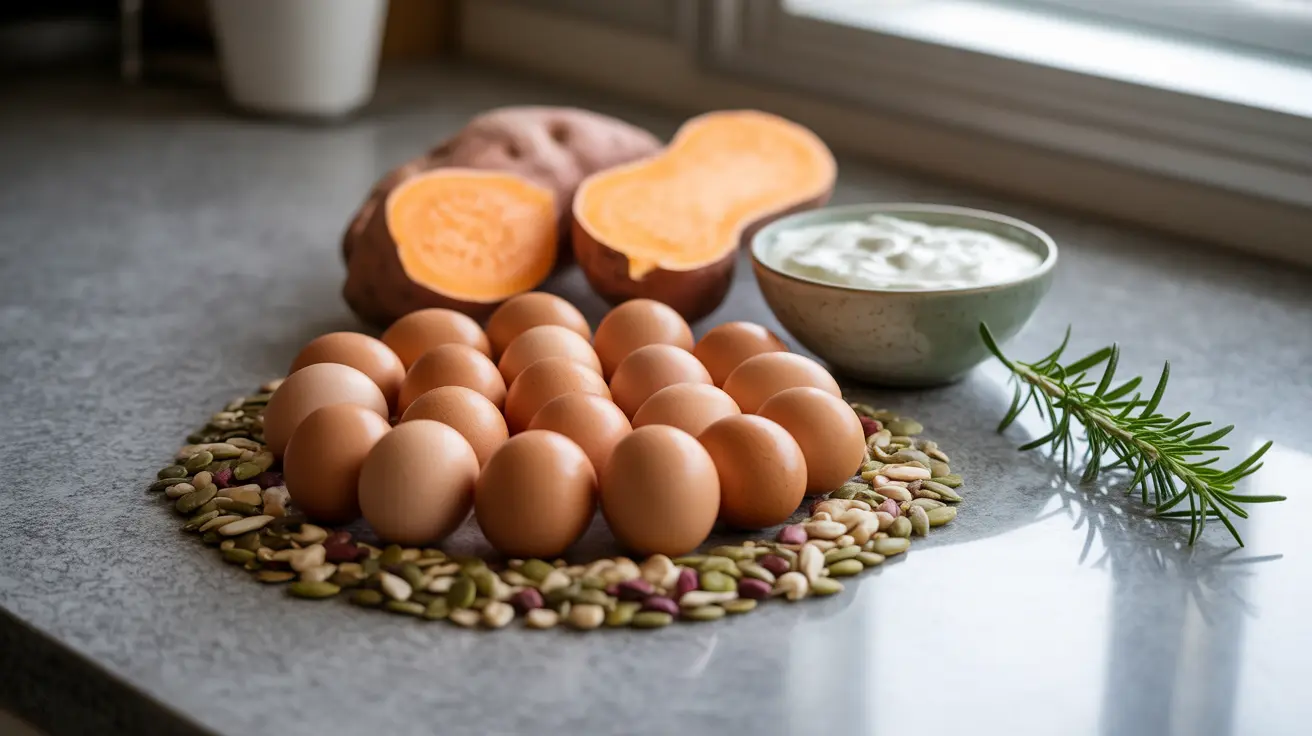Biotin, also known as vitamin B7, plays a crucial role in maintaining healthy hair, skin, and nails while supporting various metabolic processes in the body. Understanding which foods contain this essential nutrient can help you maintain optimal biotin levels naturally through your diet.
In this comprehensive guide, we'll explore the richest dietary sources of biotin and understand how to incorporate them effectively into your daily meals for maximum benefits.
Best Natural Sources of Biotin
Animal-Based Sources
Several animal products serve as excellent sources of biotin:
- Organ meats (especially liver)
- Eggs (particularly egg yolks)
- Fish (salmon, tuna, and sardines)
- Dairy products (milk, cheese, and yogurt)
Plant-Based Sources
For vegetarians and vegans, these plant foods provide significant biotin content:
- Sweet potatoes
- Nuts (especially almonds and peanuts)
- Seeds (sunflower and pumpkin seeds)
- Legumes (soybeans and lentils)
Understanding Biotin Absorption
The way you prepare and consume biotin-rich foods can significantly impact how well your body absorbs this vital nutrient. Proper food preparation and combining certain foods can enhance biotin absorption and utilization in your body.
Factors Affecting Biotin Availability
Several factors can influence how effectively your body absorbs biotin from food:
- Cooking methods
- Food combinations
- Digestive health
- Certain medications
Incorporating Biotin-Rich Foods into Your Diet
Making dietary changes to increase biotin intake doesn't have to be complicated. Here are some practical ways to include more biotin-rich foods in your daily meals:
- Add nuts and seeds to breakfast cereals or yogurt
- Include eggs in your breakfast routine
- Incorporate sweet potatoes into lunch or dinner
- Snack on nuts and seeds throughout the day
Signs of Adequate Biotin Intake
When you're getting enough biotin from your diet, you may notice several positive changes:
- Stronger, healthier hair
- Improved nail strength
- Better skin condition
- Enhanced energy levels
Frequently Asked Questions
What are the richest sources of biotin in a typical diet?
The richest sources of biotin include organ meats, egg yolks, nuts (particularly almonds), seeds, fish, and sweet potatoes. Dairy products and legumes also provide significant amounts of this essential nutrient.
How does biotin deficiency affect hair and skin health?
Biotin deficiency can lead to hair thinning, brittle nails, and skin rashes. It may also cause dry, scaly skin and increased hair loss. Maintaining adequate biotin levels is crucial for healthy hair growth and skin maintenance.
What are some natural ways to boost biotin levels in the body?
The most effective natural ways to boost biotin levels include eating a varied diet rich in biotin-containing foods, ensuring proper food preparation methods, and maintaining good digestive health. Regular consumption of eggs, nuts, seeds, and leafy greens can help maintain optimal biotin levels.
Is it safe to take biotin supplements if I'm already getting enough from food?
While biotin supplements are generally considered safe, they may not be necessary if you're getting adequate amounts from your diet. Excess biotin is typically excreted in urine, but it's best to consult with a healthcare provider before starting any supplement regimen.
Can eating raw eggs reduce biotin absorption from my diet?
Yes, raw eggs contain avidin, a protein that binds to biotin and prevents its absorption. Cooking eggs deactivates avidin, making the biotin available for absorption. Therefore, it's recommended to always consume eggs fully cooked.




